NYC Just Had Its Worst Year for Brush Fires this Decade
As brush fires continue to rage in the New York area, data shows that they’ve become more prevalent in recent years.

![The [Abandoned] Couches of Detroit](/content/images/size/w100/wp-content/uploads/2011/02/couches-1.jpg)
It’s not a new thing, my obsession with street furniture. The streets of New York are peppered with discarded chairs out waiting for trash pickup, and living there I was always in the habit of photographing them. Chairs take on anthropomorphic qualities easily, and when something first grabs my photographic eye, I don’t analyze it too deeply; it is only in retrospect and by accumulation that I start to see themes emerge and begin to pay more attention to what they are.
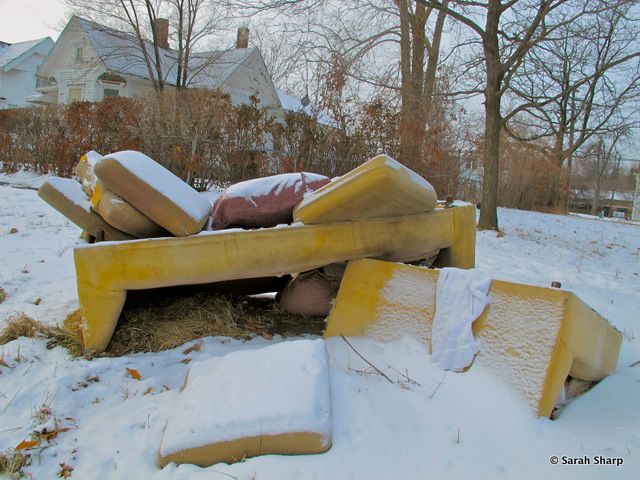
By the time I’d moved to Detroit, I’d recognized having a “thing” about street furniture, and decided to focus on that theme. Thus began work on Couches of Detroit, a calendar that will feature twelve seasonal Detroit landscapes, each featuring a discarded or abandoned couch.
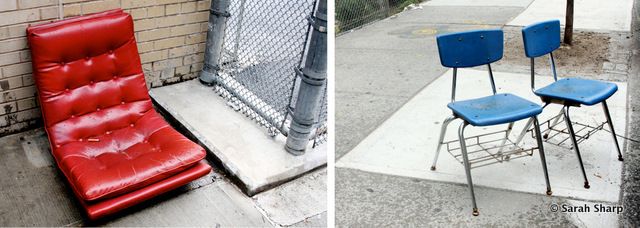
In the process of encountering and cataloguing Detroit’s finest street couches, I find myself thinking more and more about the idea of discard, and the qualities that lead a person to value one thing and to cast another away. I’m an inveterate comber of thrift-stores, full of things that are perhaps not shiny or new, but still useful. Detroit has some of the best thrift and resale stores I’ve ever seen, and though excavation here sometimes has the feel of cultural anthropology, the purpose for these old, useful things – made thoughtfully and often by hand – has not been lost to time. It’s still here, undisturbed as the couches left out on the curb. Waiting for someone.
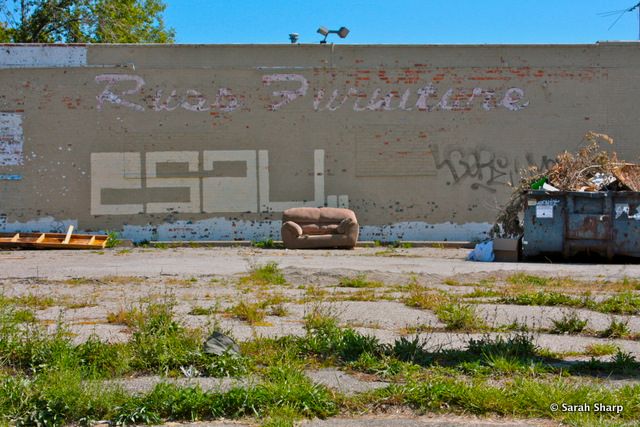
In our haste to have newer, shinier, younger things, are we throwing too much away? Detroit’s golden age was built on assembly-line production. Did that perhaps foster an above-average tendency to toss out perfectly good, usable things? Maybe even an entire perfectly good and useable city? To be sure, Detroit is not the only place that people throw out couches, but due to the limit on funding for municipal services, it’s one of the only places I’ve seen where the couches stay where they’re abandoned for so long, people actually start to use them again.
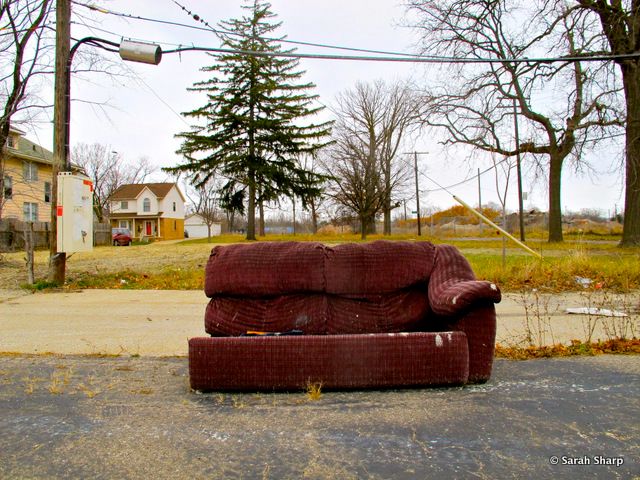
Not during the winter, when rain and cold damage the material, but throughout the sunny seasons, people are holding court on corners of abandoned lots gone to seed with wildflowers. A couch that was to one person just a large piece of trash, is still good for another to sit or maybe even sleep on. I submit that the instinctive revulsion to discarded upholstery crosses the line from basic sanitary concerns over to an obsession with youth and fresh beauty that has even permeated our objects. Led as we are to value something new over something old, there are people going to chain stores to pay thousands of dollars for couches, that they later resell for a tenth the price on craigslist, or simply dump on the street to be rid of them. What takes place in that transition? How much time and money do we spend building, buying, and replacing things that could still serve a function?
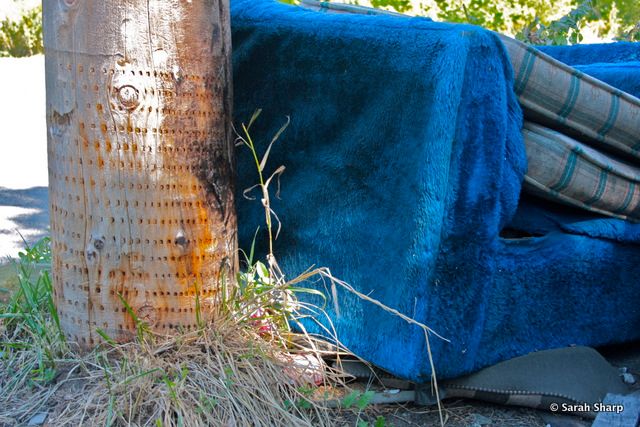
Maybe we should take a seat and think about it.
Sarah Sharp is also the creator of the web comic, Small Victories.
Follow UntappedCities on Twitter and Facebook. Get in touch with the author at sarawithanh.sharp@gmail.com
Subscribe to our newsletter